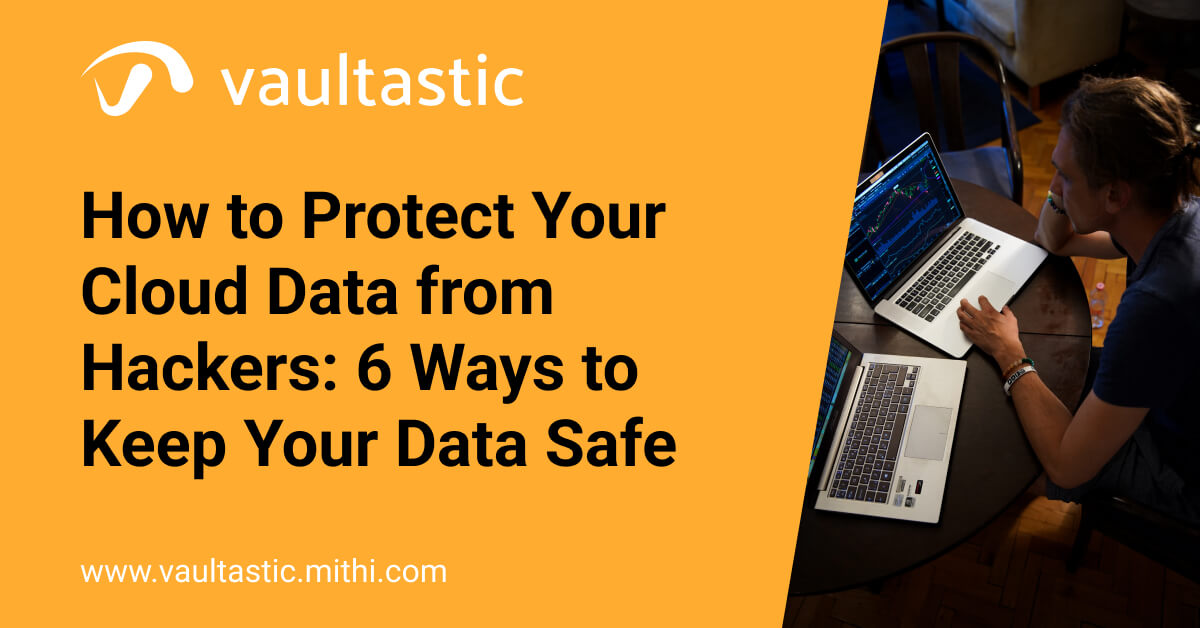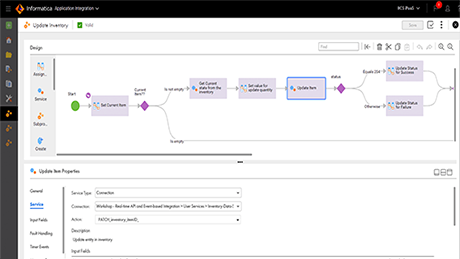In today’s digital age, the use of cloud computing has become increasingly popular. With cloud computing, individuals, businesses, and organizations can store and access their data from anywhere in the world. However, with the convenience of cloud computing comes the risk of cyber attacks. Hackers and cybercriminals are always on the lookout for vulnerabilities to exploit to gain unauthorized access to cloud data. The question then arises, how can you protect your cloud data from hackers?
In this article, we will discuss effective ways to safeguard your cloud data from cyber threats. We will explore various security measures that you can implement to ensure that your data is safe and secure. Whether you are using cloud computing for personal or business purposes, it is essential to understand the risks involved and take proactive steps to mitigate them. By the end of this article, you will have a comprehensive understanding of how to protect your cloud data from hackers, and you can rest easy knowing that your sensitive information is safe and secure.
Steps to protect your cloud data from hackers:
- Backup your data on a regular basis. Use a cloud-based backup system that is secure and reliable.
- Use multi-factor authentication for access to the cloud. This adds an extra layer of security.
- Encrypt your data before it is uploaded to the cloud. Use strong encryption algorithms and strong passwords.
- Enable logging and audit trails. This will help to detect any suspicious activity.
- Use a firewall to protect your cloud data. This will help to block malicious traffic and protect your data.
- Monitor your cloud environment. Use monitoring tools to detect any unusual activity or suspicious behavior.
- Update your security policies. Regularly review and update your security policies to ensure they are up to date.

Protecting Your Cloud Data from Hackers
Cloud-based storage solutions are the most popular and secure way to store your data. But with the increasing number of cyberattacks, it is essential to understand how to protect your cloud data from hackers. This article will explain the steps you can take to protect your cloud data from malicious actors.
1. Use a Secure Cloud Storage Solution
The first step in protecting your cloud data is to use a secure cloud storage solution. Make sure to research the provider and its security measures, such as encryption and two-factor authentication. This will help ensure that your data is kept safe and secure. Additionally, make sure to back up your data regularly as an extra layer of security.
2. Implement Multi-factor Authentication
Multi-factor authentication (MFA) is an essential security measure for protecting your cloud data. MFA requires users to provide an additional piece of information, such as a one-time code or biometric data, to access the system. This extra layer of security can help prevent unauthorized access to your data.
3. Regularly Monitor Your Data
Regularly monitoring your data is essential for ensuring that it remains safe and secure. Make sure to monitor for signs of suspicious activity, such as sudden spikes in usage or data transfers. Additionally, regularly review the access permissions for all users to ensure that only authorized users have access to your data.
4. Use Strong Passwords
Another step you can take to protect your cloud data is to use strong passwords. Make sure to use a combination of upper and lowercase letters, numbers, and special characters. Additionally, avoid using the same password for multiple accounts as this can make it easier for hackers to gain access to your data.
5. Disable Unused Accounts
If you have any unused accounts, make sure to disable them immediately. Unused accounts can provide an easy point of entry for hackers, so it is essential to make sure that all accounts are secure. Additionally, make sure to revoke access for any former employees or contractors who no longer need access to the system.
6. Update Your Firewall
Your firewall is essential for keeping your data safe from malicious actors. Make sure to keep your firewall up to date with the latest security patches and updates. Additionally, configure your firewall to block any suspicious activity, such as IP addresses or ports.
7. Use Encryption
Encryption is an essential security measure that can help keep your data safe from hackers. Make sure to encrypt your data both at rest and in transit to ensure that it remains secure. Additionally, make sure to use a secure encryption algorithm, such as AES-256, to make it harder for hackers to gain access to your data.
8. Monitor Your Network for Vulnerabilities
Regularly monitoring your network for vulnerabilities is essential for ensuring that your data remains safe from malicious actors. Make sure to use a vulnerability scanner to identify any security weaknesses in your system. Additionally, use a web application firewall to help protect your data from malicious actors.
9. Educate Your Employees
Educating your employees on cyber security is another important step for protecting your cloud data. Make sure to provide your employees with security training to ensure that they understand how to protect your data. Additionally, make sure to provide regular reminders to employees about the importance of security measures, such as strong passwords and two-factor authentication.
10. Use a Security Platform
Finally, consider using a security platform to help protect your cloud data. Security platforms can provide an extra layer of protection from malicious actors. Make sure to research the different platforms available and choose one that meets your needs. Additionally, make sure to regularly monitor your security platform to ensure that it is up to date with the latest security measures.
Frequently Asked Questions
Here you can find the answers to your questions about how to protect your cloud data from hackers.
How can I protect my cloud data from hackers?
The best way to protect your cloud data from hackers is to use strong passwords and two-factor authentication. When creating passwords, be sure to use a combination of upper and lower case letters, numbers, and symbols. Additionally, you should avoid using the same password for multiple accounts and make sure to change them on a regular basis. Two-factor authentication provides an extra layer of security, as it requires the user to enter a code sent to their mobile device or email in order to log into their accounts.
Another important step is to ensure that your data is encrypted. Encryption makes it extremely difficult for hackers to access your data, even if they manage to get past your passwords. You should also use a reliable cloud provider that has strong security measures in place to protect your data. Finally, be sure to keep your cloud system up to date with the latest security patches and monitor your system regularly for any suspicious activity.
What else can I do to protect my data from hackers?
You should also take steps to secure your devices and networks. Make sure to install anti-virus and anti-malware software on all of your devices and keep them up to date. Additionally, you should use a secure Wi-Fi network and avoid using public networks when accessing sensitive data. Furthermore, it’s important to be aware of phishing attacks and never open any suspicious emails or click on any links that you don’t recognize.
Finally, you should be aware of the laws and regulations surrounding data security. Make sure that you are compliant with any applicable laws and regulations and always follow best practices when it comes to data security. In order to ensure that your data is protected, it’s important to create a secure environment and keep up with the latest security trends.
Do I need to protect my cloud data from external threats?
Yes, it’s important to protect your cloud data from external threats. Hackers can use a variety of techniques to gain access to your data, so it’s important to take steps to secure your data. This includes using strong passwords and two-factor authentication, encrypting your data, and using a reliable cloud provider. Additionally, you should be aware of phishing attacks and be sure to follow best practices when it comes to data security.
It’s also important to keep your system up to date with the latest security patches and monitor your system regularly for any suspicious activity. Finally, you should make sure that you are compliant with any applicable laws and regulations and always follow best practices when it comes to data security.
What should I do if my data is compromised?
If you suspect that your data has been compromised, the first step is to contact your cloud provider and request an investigation. Once the investigation is complete, the cloud provider should be able to provide you with information about how the breach occurred and what steps you can take to prevent it from happening again. Additionally, you should inform any customers or users whose data may have been affected and take steps to ensure that the data is secure going forward.
It’s also important to review your security policies and consider implementing additional security measures. This includes updating your passwords regularly, using two-factor authentication, and encrypting your data. Additionally, you should use a reliable cloud provider and keep your system up to date with the latest security patches. Finally, be sure to be aware of the laws and regulations surrounding data security and always follow best practices when it comes to data security.
Are there any other ways to protect my cloud data?
Yes, there are a few other ways to protect your cloud data. For example, you can use a virtual private network (VPN) to encrypt your data and make it more difficult for hackers to access. Additionally, you should consider using a password manager to store and generate strong passwords. Finally, you can also use an intrusion detection system to monitor your network for any suspicious activity.
Overall, the best way to protect your cloud data is to use strong passwords and two-factor authentication, encrypt your data, and use a reliable cloud provider. Additionally, you should keep your system up to date with the latest security patches and monitor your system regularly for any suspicious activity. Finally, be sure to be aware of the laws and regulations surrounding data security and always follow best practices when it comes to data security.

In conclusion, protecting your cloud data from hackers requires a multi-layered approach that involves implementing strong security measures, being vigilant about potential threats, and staying up-to-date with the latest security technologies. By taking these steps, you can significantly reduce the risk of your data being compromised and keep your sensitive information safe from cybercriminals.
Remember, the consequences of a data breach can be severe, ranging from financial losses to reputational damage. Therefore, it is crucial to prioritize security and invest in robust protection measures that can safeguard your cloud data. By doing so, you can enjoy the benefits of cloud computing while minimizing the risks associated with storing your data in the cloud.



